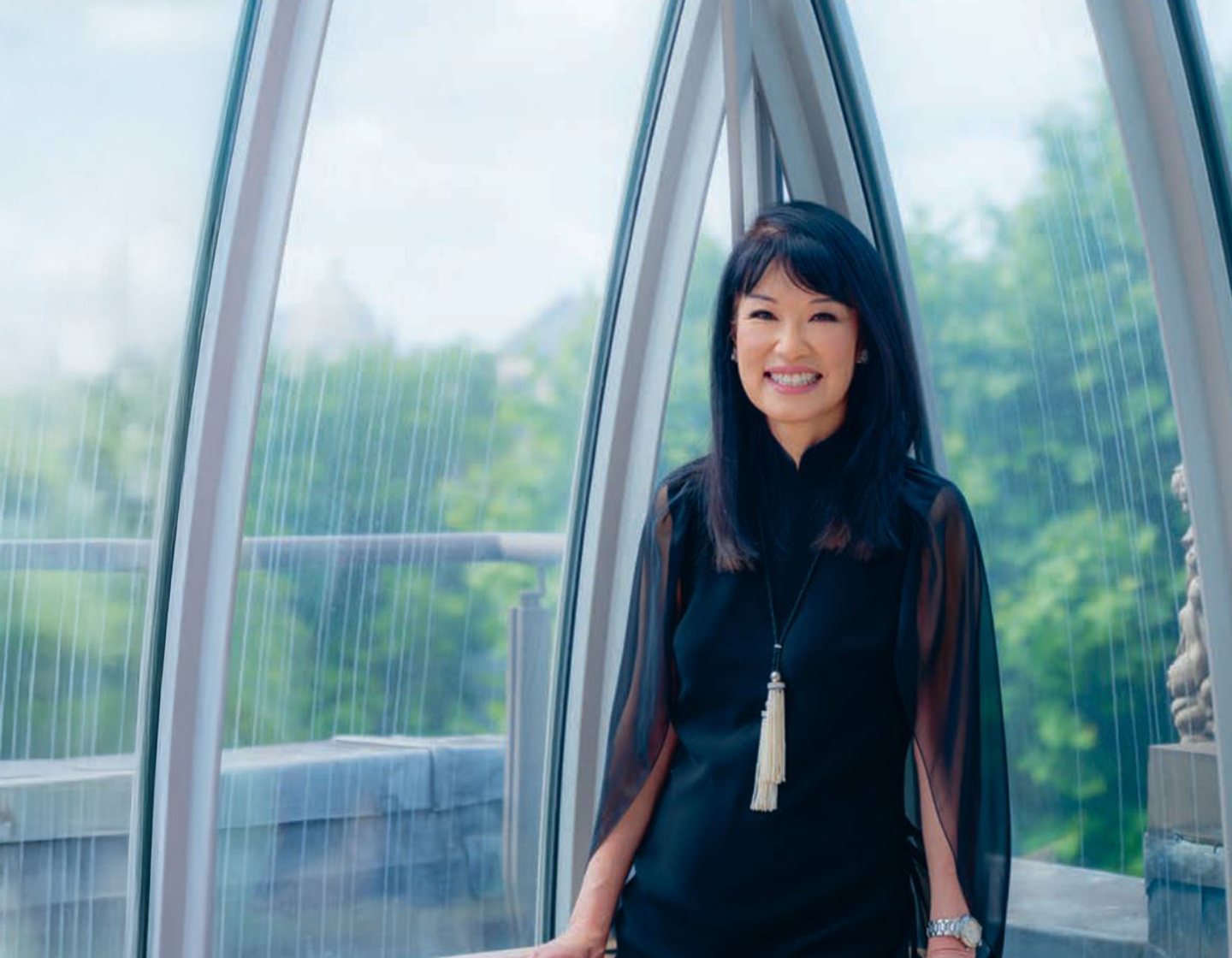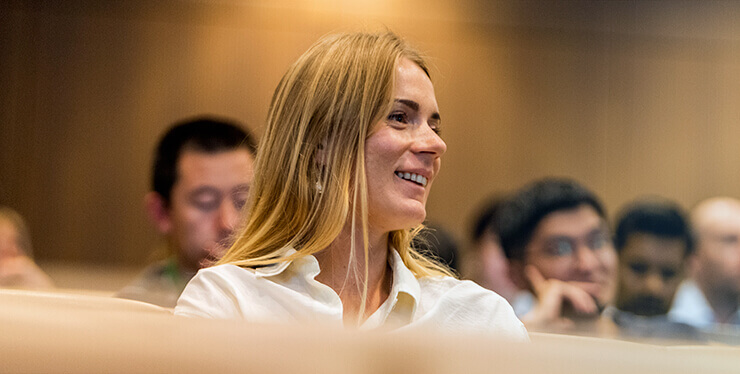
Su-Mei Thompson is a high-flier who has always combined a ferocious work ethic with a passion for equality and inclusion. The first woman to be included in the IMD MBA Dean’s List, she laughs at the memory of how she would reach the end of the long reading lists and ask her professors for more. “My parents sacrificed a lot to give me the best education they possibly could, and that knowledge and guilt drove meto work even harder. It also drove me to spend the last decade of my life focused on narrowing the gaps in society and widening access to education and opportunities.”
Her early career was as an international finance lawyer with Linklaters before moving in-house with the Walt Disney Company followed by a general counsel role with first-generation NASDAQ-listed dotcom, Asiacontent.com. She opted for an MBA to gain the skills for senior management roles.
After graduating from IMD, she became Managing Director of the Financial Times in Asia. She was far-sighted enough to initiate the FT’s Sustainable Banking Awards in 2008, long before sustainability became a mainstream business issue. In the first year of the Awards, there were just 10 applications; a decade later there were hundreds, and the principles of triple bottom line investing were being promoted and embraced by major banks and investment funds around the world.
A year-long sabbatical to devote time to her young family served as an epiphany which led her to decide against returning to corporate life and instead to join the third sector. A board position with the NGO Save the Children gave her insights into the experience of families and communities living at the bottom of the pyramid, while societal attitudes towards women who had decided to take a career break came as a shock. “People basically just see you as a mom and assume all you can talk about is kids.”
This experience prompted her to take up the post of CEO of The Women’s Foundation in Hong Kong. Under Su-Mei’s leadership, The Women’s Foundation emerged as a leading non-profit, known for its innovative and impactful community programmes and effective partnerships with multiple stakeholders, while Su-Mei started to make her mark as a leading advocate for gender equality on the international stage. She also co-produced the award-winning documentary “She Objects”, which explores how the media representation of women and girls creates and exacerbates harmful gender stereotypes, and was invited to discuss the issue at the Cannes Film Festival.
“Organizations need more inclusive leadership and leaders who combine empathy with integrity”
In 2017, Su-Mei moved to London to head up Media Trust, a non-profit organization that works with partners like the BBC, Warner Bros. Discovery, Google and Facebook to give charities, marginalized groups and young people a stronger voice. In 2020, she was appointed to the Board of the UK’s Equality and Human Rights Commission – the UK’s national human rights institution.
“It’s an extraordinary privilege to be in a position to help advance equality and fairness in all parts of society. A lot of people think that gender is ‘done’, but there are still considerable employment and pay gaps, which are even bigger when it comes to race and disability.”
Looking back, Su-Mei recalls writing in her application to IMD that “I wanted to develop the skills to end up doing something with significant positive social impact.”
This awareness was reinforced during her year in Lausanne: “It was clear from class discussions that if you don’t include broader society as one of your key stakeholders, and if you’re not thinking about your impact on the community or on the environment, then you’re not going to be a sustainable business. As a year group, we all agreed that it was important not just to do things right but also to do the right things and, if need be, to change the rules of the game. I was really fortunate to be with a cohort of inspirational and innovative peers who combined strong ethics and incredible empathy with the ability to get things done.”
Su-Mei particularly valued the quality of class discussions. “You’ve got 90–100 very smart people around you, and you have to really think about what your contribution is going to be to the discussion … acknowledging what other people have said and then building on it. Learning how to do that has stood me in good stead for the rest of my career.”
It was through studying at IMD that the opportunity to work for the Financial Times came about. She was invited to co-author a case study on Pearson (which at the time owned the FT) with Professor Bala Chakravarthy and as part of their research, she met the Director for People at Pearson– who offered her the role of MD for the FT in Asia.
She adds: “I owe so much to IMD – not least for giving me the confidence and self-belief to follow my passions and help make the world more equal and inclusive.”


